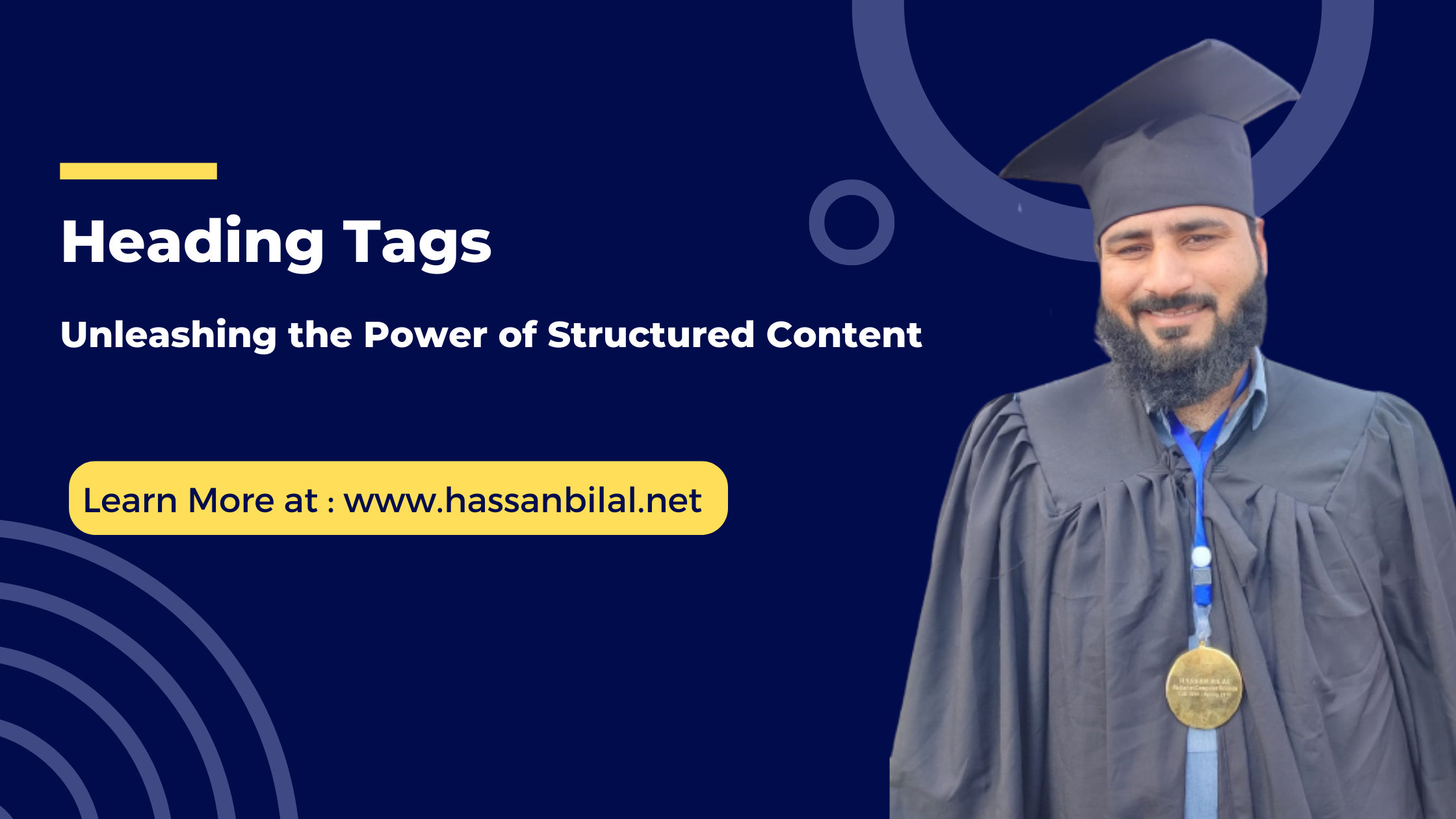Search Engine Optimization & Marketing
Heading Tags: Unleashing the Power of Structured Content

Heading tags are HTML elements used to define the headings of a web page. They are used to structure the content of a page and to make it easier for search engines to understand the page’s content.
There are six levels of heading tags, from H1 to H6. H1 is the most important heading tag, and H6 is the least important. The heading tags should be used in a hierarchical order, with each heading tag being nested within a higher-level heading tag.
Why are Heading Tags Important for SEO?
Heading tags are important for SEO because they help search engines understand the structure and content of a page. Search engines use the heading tags to determine the topic of a page and to rank the page for relevant search queries.
Understanding the Significance of Heading Tags
Structuring Content for Search Engines
Heading Tags play a crucial role in organizing and structuring your web page’s content. They provide search engines with a clear outline of your content’s hierarchy, indicating the most important sections and subtopics. By using Heading Tags properly, you help search engines understand the context and relevance of your content, ultimately improving your chances of higher search rankings.
Enhanced User Experience and Readability
Heading Tags not only benefit search engines but also greatly improve the user experience on your website. Properly structured content with Heading Tags makes it easier for users to scan and navigate through your webpage. By using descriptive and concise headings, users can quickly identify the sections that are most relevant to their interests, increasing engagement and overall satisfaction.
Keyword Optimization and Relevance
Heading Tags provide an excellent opportunity to optimize your content for relevant keywords. By incorporating keywords naturally into your headings, you signal to search engines the key topics covered in each section. This helps search engines understand the theme and relevance of your content, potentially boosting your visibility and organic rankings for those keywords.
Effective Use of Heading Tags
Hierarchy and Consistency
- Use H1 for the main heading of the page.
- Use H2 for the subheadings of the page.
- Use H3 for the sub-subheadings of the page.
- Continue using the heading tags in a hierarchical order.
- Include your target keywords in the heading tags.
- Keep the heading tags short and concise.
- Avoid using too many heading tags.
Keywords and Relevance
Incorporate relevant keywords into your headings, but do so naturally and without keyword stuffing. Be mindful of the balance between optimization and readability. Craft headings that accurately summarize the content that follows, using keywords that align with the search intent of your target audience.
Clarity and Conciseness
Make your headings clear, concise, and easy to understand. Use short sentences or phrases that effectively convey the main point of each section. Avoid vague or generic headings that fail to provide meaningful information. Remember, headings are meant to guide both search engines and users through your content.
Formatting and Styling
Take advantage of the formatting options available for Heading Tags. Use CSS to style your headings in a visually appealing manner, ensuring they stand out and are easily distinguishable from the rest of the content. However, be cautious not to overuse styling elements that may distract or confuse users.
Using heading tags in a hierarchical manner benefits:
The Hierarchy of Heading Tags is established based on their order and significance, with H1 being the most important and H6 being the least important. It is important to follow this hierarchy properly to maintain consistency and optimize the content for both users and search engines.
SEO and Keyword Optimization:
Search engines consider the text within heading tags as important indicators of the page’s topic or theme. Placing targeted keywords in the appropriate heading tags, especially H1 and H2, can signal to search engines the relevance and significance of the content. This can positively impact SEO and improve the page’s visibility in search engine results.
Readability and User Experience:
Heading tags help users quickly scan and navigate through the content, making it easier to understand the structure and find relevant information. By properly structuring the content with clear and concise headings, users can locate the specific section they are interested in without having to read the entire page. This enhances user experience and keeps visitors engaged with the content.
Semantic Markup and Accessibility:
Properly using heading tags creates a semantic structure for the content, allowing assistive technologies like screen readers to interpret and present the information accurately to users with disabilities. Semantic markup also adds clarity to the content’s meaning, making it easier for search engines to understand and index.
Hierarchy of Heading Tags, best practices:
- Use a single H1 tag per page to indicate the main heading or title.
- Utilize H2 tags for section headings that provide a clear hierarchy and structure to the content.
- Use H3, H4, and subsequent tags for subheadings within sections, maintaining the logical flow of the content.
- Avoid skipping heading levels or using multiple H1 tags, as this can confuse search engines and negatively impact SEO.
Conclusion
Understanding and implementing the Hierarchy of Heading Tags is crucial for effective SEO and improved user experience. By structuring content with appropriate heading tags, website owners can optimize their pages for search engines, enhance readability, and provide a clear and organized structure for users. Following the best practices and maintaining consistency in heading tag usage will contribute to the overall success of your website in terms of SEO and user engagement.
